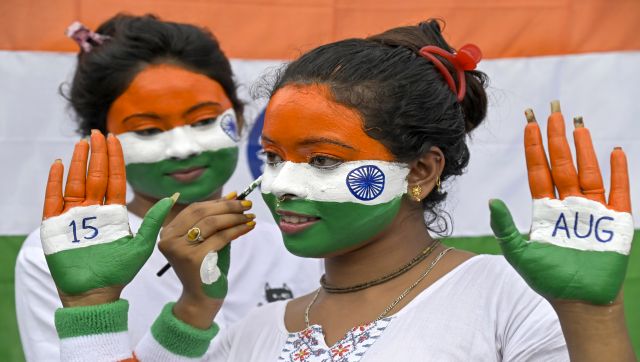Globally, India holds the rather distinguished position of being the ’largest democracy’ in the world. It boasts of a constitution that empowers its citizens with freedoms and rights that are yet to be recognised in several other parts of the world. However, the country’s reality appears significantly different from what its constitution preaches, with numerous communities continuing to strive for acceptance while being relegated to the margins. In an attempt to reverse a historical wrong, the draconian Section 377 of the Indian Penal Code was struck down by India’s Supreme Court on 6 September, 2018, thereby decriminalising homosexuality.
The verdict has been called momentous for Indian society, as it now provides an avenue for the country to help the LGBTQIA+ community gain more visibility and access to spaces that had so far been unwelcoming. In hopes of such a democratic future, Kolkata’s Cafe #377 opened its doors last month, with the message of equality and unity splashed all over its walls.
Nestled in the corner of a busy street in the south-side of the city, the restaurant clearly declares its allegiance with the colours of the rainbow, and a whole lot of pink.
“We were clear about who we are from day one — this space stands for equality, unity, and love. It asks you to be proud of who you are as we’ve all been made equally by God,” says Sk Manirul Islam, owner and CEO at Cafe #377. He calls it his dream project, one that has been in the pipelines for years, and a first for him in the hospitality sector.
“I am in the real estate business, and this is my first cafe. I am overwhelmed by the positive response I have received so far,” the 29-year-old says. But he insists that his establishment does not cater to any specific group. “The idea is to have every space open for everyone. Why should there be exclusive spaces for particular groups of people?” he asks.
While indeed the idea behind an egalitarian society fuels the nurturing of spaces that are accessible to all, Islam agrees that changes don’t happen “overnight”. So, in order to create a safe venue for the queer community to freely express themselves in, Upasana Agarwal opened Amra Odbhuth Cafe in 2016.
It borrows its name from a song by Rabindranath Tagore that literally translates to ‘we are queer’. “We are currently operating as a space hosting pop-ups and events. We are trying to raise funds so we can open full-time. Hopefully, that’ll happen in the next two to three months,” Agarwal says.
Initially named ‘Adamant Eve’, the three-year-old space is solely dedicated to holding dialogues on the LGBTQIA+ community. “We are a space for and by the [LGBTQIA+> community.”
From a fundraiser by Alok Vaid-Menon, the gender non-conforming artiste, to several workshops, exhibitions, and talks on queer history and art, Amra Odbhuth has played host to a plethora of events that help demystify the queer community in the city. The cafe even houses a small library with books on and by writers from the community.
In scale, the two venues stand miles apart. While the former draws attention to its flamboyant presence in the middle of an uptown neighbourhood in Kolkata, the latter is quietly tucked away in the by-lanes of a modest settlers’ colony. Yet, both open their doors to endless possibilities for a community that has been systemically invisibilised and colonised by patriarchal forces. “We’re open to employing anyone who wishes to work here, irrespective of their gender, sexuality, or anything else. If someone from the trans-community wishes to work here, we’d be happy to help them,” Islam says, adding that his cafe isn’t merely an eatery — it’s a “feeling”.
While Amra Odbhuth — decked out in twinkling fairy lights and earth-coloured upholstery — creates a warm and intimate atmosphere for people to have dialogues that can often come from deeply personal spaces, Cafe #377 aims to celebrate this freedom that had been denied to the community for centuries. The pink of its decor and spirit is reflected in the food too.
“We have pink burgers, pink pizza, and pink kebabs, made with beetroot juice!” Islam says. After all, “pink is also a beautiful colour,” he adds.
At the turn of the year that witnessed the rewriting of Indian history, with the judiciary restoring only a fraction of the rights for a large section of society, newer challenges emerge for the LGBTQIA+ community that continues to fight for equal rights of marriage, inheritance, and family. But with places like Amra Odbhuth and Cafe #377 setting up shop in the country, the battle might just become a tad easier for the community.


)




)
)
)
)
)
)
)
)